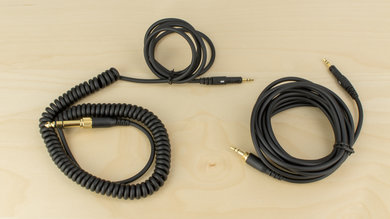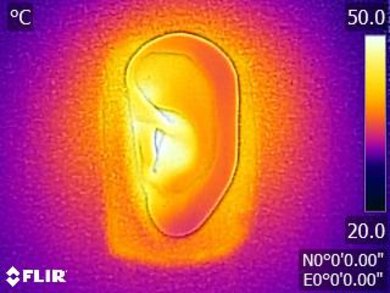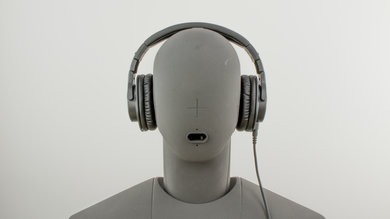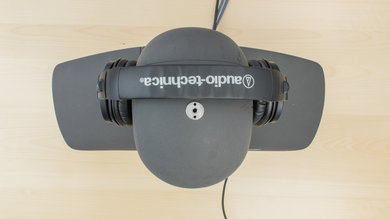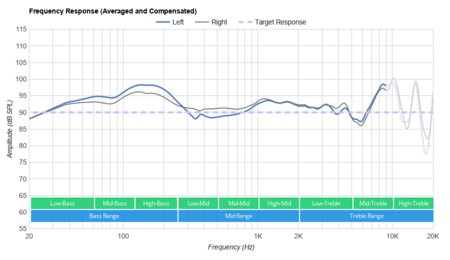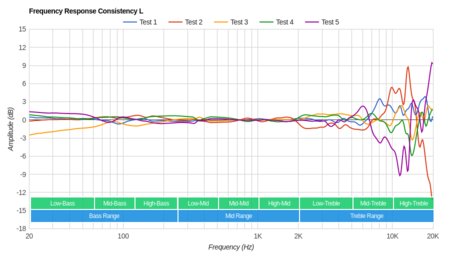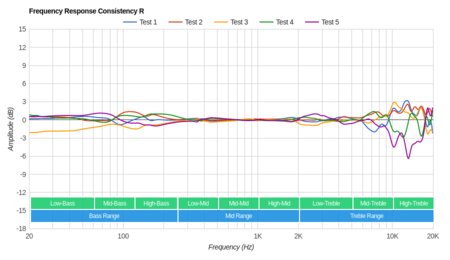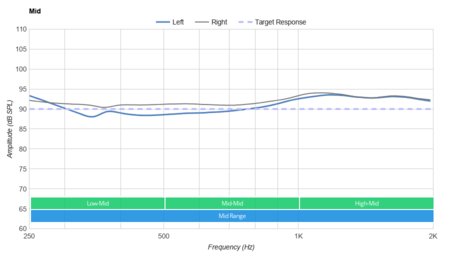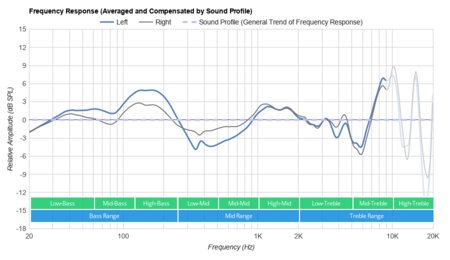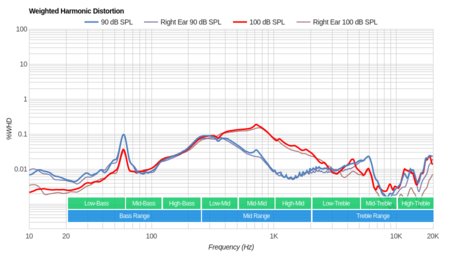Our Verdict
The Audio-Technica M40X deliver a reliable bass, mid, and treble response for neutral listening. They don't have much soundstage because of their closed-back design, but their well-balanced sound will still satisfy most listeners.
- Good audio reproduction.
- Sturdy build.
- Poor isolation.
- No buttons or audio controls.
Not ideal for commuting and loud noisy environments. Their passive isolation doesn't block much noise.
- Good audio reproduction.
- Sturdy build.
- Poor isolation.
- No buttons or audio controls.
Not designed for sports. They're a bit too bulky and unstable to stay put during intense exercises.
- Good audio reproduction.
- Sturdy build.
- Poor isolation.
- No buttons or audio controls.
Mediocre for office use. They won't block the chatter of a busy office and leak a bit too much for a quiet one.
- Good audio reproduction.
- Sturdy build.
- Poor isolation.
- No buttons or audio controls.
- Good audio reproduction.
- Sturdy build.
- Poor isolation.
- No buttons or audio controls.
Changelog
- Updated Jul 07, 2021: Converted to Test Bench 1.5.
- Updated Feb 07, 2020: Converted to Test Bench 1.4.
- Updated Nov 21, 2019: Converted to Test Bench 1.3.1.
- Updated Nov 21, 2019: Converted to Test Bench 1.3.
Check Price
Popular Headphones Comparisons
See our recommendations for the best over-ear headphones, the best wired headphones, and the best audiophile headphones.
The Audio Technica ATH-M50x are very similar to the Audio Technica M40x, but they have a slight edge over them. They feel a bit sturdier and better-built than the M40x. Both headphones will give you great sound and are also great options for critical listening, but the M50x offer one of the best values on the market due to their great price-to-performance ratio.
The Sony MDR-7506 and the Audio-Technica ATH-M40x are closed-back headphones. The Sony are more consistent among various users and have a repariable design, while the Audio-Technica have a more comfortable and stable fit, and come with two different detachable audio cables.
The Audio-Technica ATH-M40x are better headphones for a neutral sound than the Audio-Technica ATH-M30x from the same lineup. The biggest difference is that the M40x is definitely more neutral in the treble range, where the M30x lack a lot of detail and brightness. The M40x also come with a nice coiled cable, but other than that, they're very similar.
The Beyerdynamic DT 770 PRO are slightly better than the Audio-Technica ATH-M40x. The Beyerdynamic have a slightly more accurate overall sound signature, but they can be slightly too sharp and piercing. On the upside, they're noticeably more durable than the Audio-Technica, thanks to their full-metal frame and large ear cups. If your budget allows it, go for the Beyerdynamic unless you're sensitive to higher frequencies.
Test Results


The Audio-Technica M40X have a very understated studio design that might look a little bland for some. They have an all-black color scheme with silver highlights on the back of the oval ear cups. Their design is very similar to the ATH-M50x. They look good but offer nothing remarkable with their design.

The large ear cups of the ATH-M40x fully encompass the ears and do not apply too much pressure to the head. They also swivel, which makes them easy to adjust. They are more comfortable than the Beyerdynamic DT 770 but the padding used for the headband and ear cups is a little rigid and squeak when moving or adjusting the headphones on your head.

The ATH-M40X, like the ATH-M30X, are decently portable headphones. They are on the larger side of over-ear headphones but fold into a more compact format that will fit in a backpack or handbag but will be too large for most jacket pockets. The thick or very long audio cable is also a bit cumbersome to carry around but unlike the lower-end model of the series are detachable.
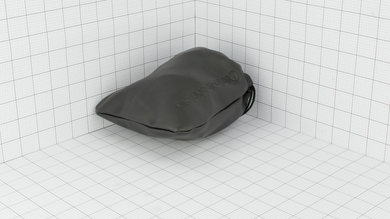
Comes with a soft fabric pouch that does not add extra bulk and protects the headphones from scratches. However, it does not protect them from falls.

The ATH-M40X feel robust and durable. They have a mostly plastic design that's dense and able to handle a fair amount of physical stress. They have a metal frame that reinforces the headband, and the ear cups feel sufficiently sturdy to withstand a few drops without damage. The joints, on the other hand, are susceptible weak points where these headphones could get damaged and may weaken over time.

The Audio-Technica M40x are decently stable on the head. They are not designed for sport, so they will easily slide off your ears while running or jumping. However, for casual listening sessions, they will stay in place even if you put them on, tilted and little further back than usual. The detachable cable is also a plus for stability, as long as you remember to unlock the cable from the ear cups.
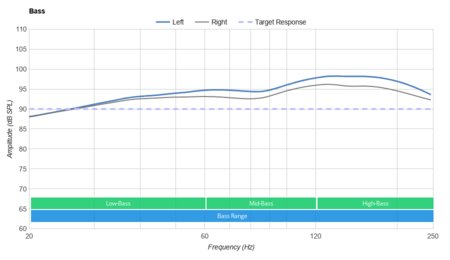
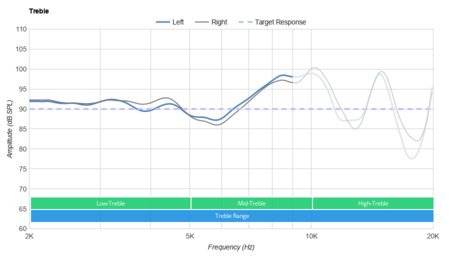
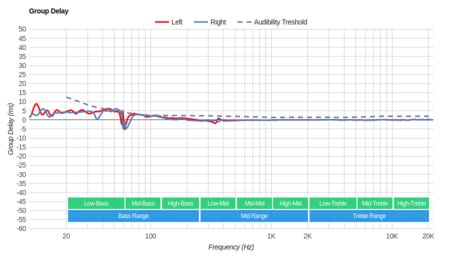
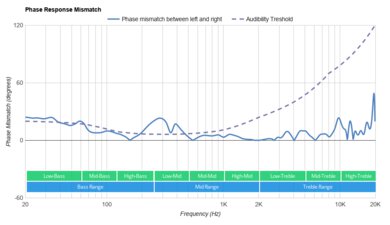
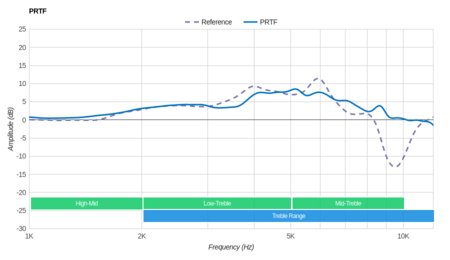
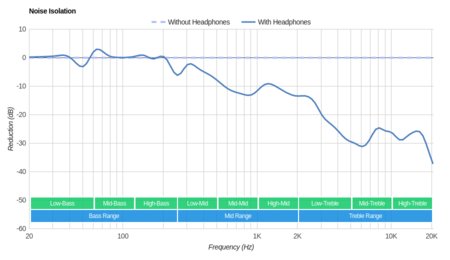
Poor isolation. The passive isolation provided by the ear cups does a decent job of blocking treble sound. However, as the frequency lowers, so does the effectiveness of the passive isolation. Their effect below 400Hz is minimal.
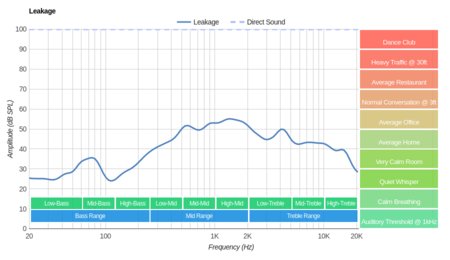
Average leakage. These headphones do leak some sound, and the majority of that happens between 500Hz and 4KHz, which is rather broadband. However, the overall leakage is not too loud.
No compatible app.
